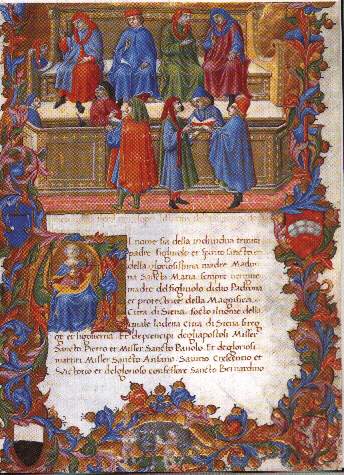
Towards the middle of 1300 there were two Credences:
- A General Credence, formed by 40 people.
- A Credence of the "Heads of the House" formed by 75 citizen representative of the "terzieri"
The General Credence was concerned with the simplest things, but, when it was to decide the town expenses, to make alliances or to declare war, it had to agree with the Credence of the Heads of the Houses.
There was also a private Council and a Council of 24 people which owned the biggest estate (it was formed by the richest families in town). The former was concerned with ordinary administration, the latter intervened in more important questions.
The General Credence had a general competence. When it had to deliberate over important matters, like peace or war, it looked for the approval of the heads of the houses; in these circumstances the two Credences got together. The deliberations of the Credence had to be respected by everybody until they were changed or cancelled. Every year at the beginning of August the Council of the Credences had to hold a meeting to decide if any reforms or additions were necessary to the statutes.